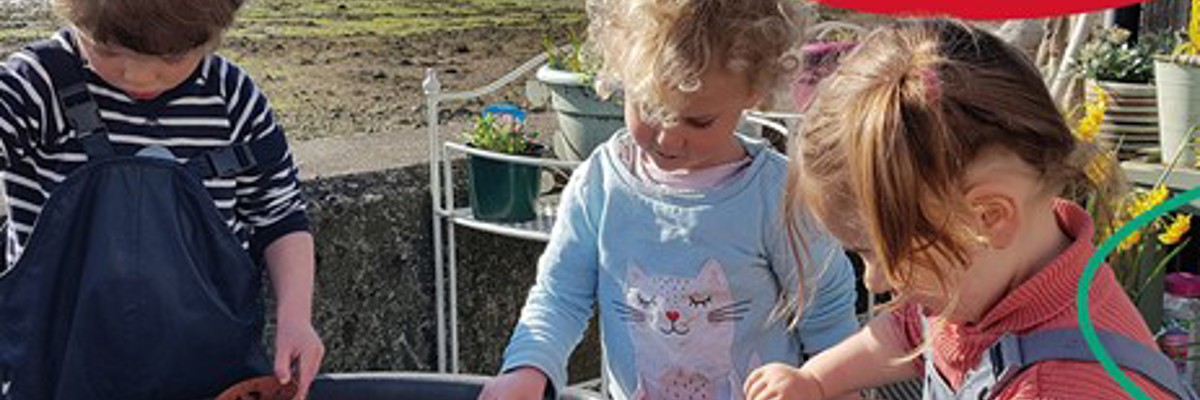
National Recruitment Campaign Launched To Address The Urgent Need For More Childminders In Scotland's Remote And Rural Communities
A new partnership pilot project launches today (Thursday, 31 March) to support the recruitment and training of more than 100 new professional childminders in specific communities within ten defined areas of Scotland, which have been identified as having an urgent need for more high-quality, flexible childcare. The areas are in Argyll & Bute, Dumfries & Galloway, Highland, Moray, North Ayrshire (Arran and Cumbrae), Orkney, Scottish Borders, Shetland, Stirling and Cne Siar.
The Scottish Rural Childminding Partnership pilot is led by the Scottish Childminding Association (SCMA) with £170,000 partnership funding from South of Scotland Enterprise (SOSE), Highlands and Islands Enterprise (HIE) and Skills Development Scotland (SDS). It aims to support economic and community development through the creation of more than 100 new professional childminding jobs and up to 900 much-needed childcare spaces for families in remote and rural areas - vital in enabling parents and carers to work and contribute to the local economy.
Those who apply and are accepted on to the pilot will be supported every step of the way by a dedicated member of the SCMA team, from induction training and support through the registration process to establishing their new business. On completion of registration with the Care Inspectorate and HMRC, the new childminder will receive a £750 start-up grant to help cover any costs associated with setting up their new business from home. They will also receive a unique package of childminding-specific training courses. As some work to recruit more childminders has already commenced in Orkney, a modified package of support is available in this area. More information on the target areas where new childminding businesses are needed, including eligibility and criteria is available at www.childminding.org/childminder-recruitment *
No previous childcare experience is required to become a childminder but applicants do need to be passionate about working with children. It’s a rewarding career which provides the opportunity to contribute to children’s development, learning and wellbeing and provides a valuable childcare service within the local community. Childminders are self-employed business owners who come from all walks of life and diverse backgrounds. They often switch to a career in professional childminding to enable them to combine caring for their own children whilst running their own business from home and earning an income.
Graeme McAlister, Chief Executive, Scottish Childminding Association, said: “Childminding is a vital community asset providing local flexible childcare and family support which is so important in remote and rural communities. The pilot is an important step towards addressing the urgent demand for high-quality childcare from parents and carers, recruiting childminders in areas where they are most needed. As we emerge from COVID-19 there may be people considering a change of career which supports working from home – this is a fantastic opportunity for those living in these target areas to access a wealth of support in setting up their own sustainable childminding business and to undertake a rewarding new career.”
A survey by SCMA in 2020 reported positive experiences of those who had decided to change their career to childminding - with 88% saying they would recommend it to others. 93% who had their own children before becoming a childminder particularly valued using their own knowledge and experience to help other families.
Liz Taylor runs a successful childminding business in a rural village in the Scottish Borders. “I would encourage anyone who is passionate about working with children and thinking of a career change to go for it! There’s so much variety, I never know what the day is going to bring. It’s a world away from my previous job in finance and my long commute to work!”
Parents and carers unfamiliar with childminding should be aware that it offers a unique, very high-quality form of childcare. All childminders are required to be registered and inspected independently by the Care Inspectorate and this helps to demonstrate the quality of care provided. For example, 93% of childminders in Scotland achieve ‘good’ or above across all quality ratings at inspection.
Douglas Cowan, Director of Communities and Place, Highlands and Islands Enterprise, said: “Rural communities across Scotland will only prosper if we are able to attract and retain young people who are economically active. This new initiative will support and extend the provision of a vital service for young families in the target areas, enabling more parents to return to the workforce. It will also provide much-needed opportunities for self-employment and business growth. This is a very welcome win-win that will deliver real benefits to many communities in our region.”
Jane Morrison-Ross, Chief Executive of South of Scotland Enterprise, said: “Organisations in our towns and villages across the South of Scotland rely on parents and carers being able to source local, high-quality childcare provision. This innovative pilot will provide a valuable opportunity for people from a range of backgrounds to re-train mid-career. The new childminders will learn additional skills, with the advantage of a package of support in place to help start up their own new childminding business within their local community. This is a great example of an opportunity for entrepreneurs delivering real value for people and communities.”
Mili Shukla, Key Sector Manager (Health and Social Care), Skills Development Scotland, said: “This is an important national initiative, targeted in remote and rural areas which aims to create more than 100 sustainable childminding businesses and support skills development. We are delighted to be partnering with SCMA and Highlands & Islands and South of Scotland Enterprise agencies in this innovative approach to help to increase opportunities for growth in remote and rural communities.”
